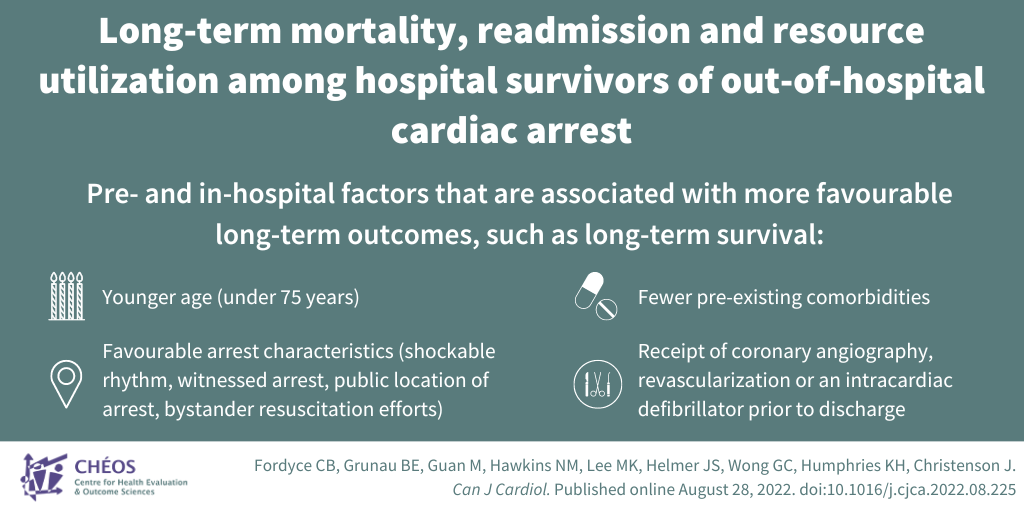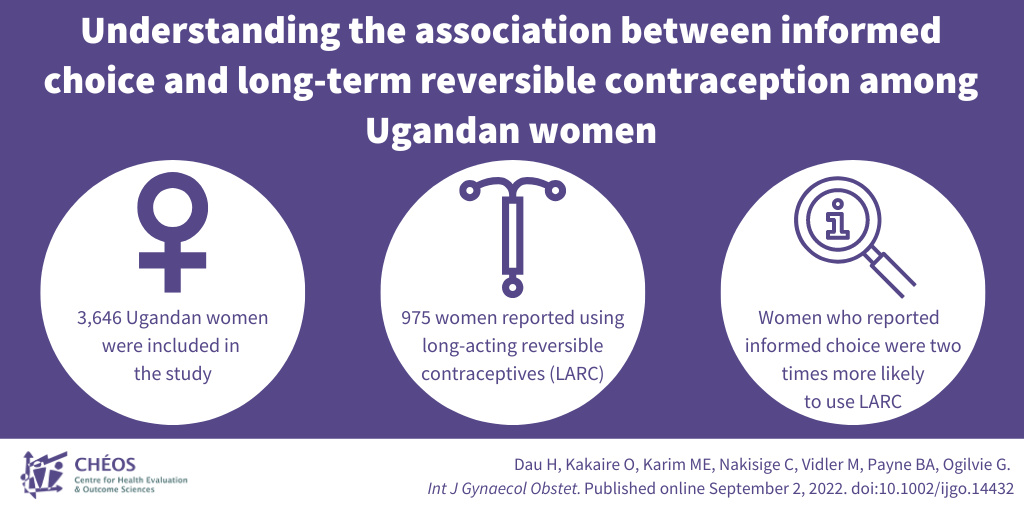The Evidence Speaks Series is a recurring feature highlighting the latest in CHÉOS research. This series features summaries of select publications and is designed to keep media and the research community up to date with CHÉOS’ current research results in the health outcomes field.
To ensure this research is quick and easy to share, we are now providing social cards that you are free to save and use as you see fit.
The Omicron variant of COVID-19 associated with less severe outcomes than Delta
Harrigan SP, Wilton J, Chong M, Abdia Y, Garcia HV, Rose C, Taylor M, Mishra S, Sander B, Hoang L, Tyson J, Krajden M, Prystajecky N, Janjua NZ, Sbihi H. Clinical severity of Omicron SARS-CoV-2 variant relative to Delta in British Columbia, Canada: A retrospective analysis of whole genome sequenced cases. Clin Infect Dis. Published online August 30, 2022.
In 2021, the Omicron variant of COVID-19 became the most dominant variant of the virus worldwide. CHÉOS Scientists Drs. Caren Rose and Naveed Janjua, alongside colleagues from B.C. and Ontario, analyzed data from the British Columbia COVID-19 Cohort to estimate the severity of Omicron (hospitalization, ICU admission, and length of hospital stay) compared to the previously dominant variant Delta. Of the 13,128 people in the cohort, 7,729 had been diagnosed with Omicron and 5,399 had be diagnosed with Delta. The researchers determined that people diagnosed with Omicron were 50 per cent less likely to be hospitalized than those diagnosed with Delta, and if they were hospitalized, stayed on average five days less than people with Delta. Furthermore, people infected with Omicron were 73 per cent less likely to be admitted to the ICU. This study supports the theory that people infected with the Omicron variant are at lower risk of severe outcomes than people infected with Delta.

—
Pre- and in-hospital factors impact long-term outcomes for cardiac arrest patients
Fordyce CB, Grunau BE, Guan M, Hawkins NM, Lee MK, Helmer JS, Wong GC, Humphries KH, Christenson J. Long-term mortality, readmission and resource utilization among hospital survivors of out-of-hospital cardiac arrest. Can J Cardiol. Published online August 28, 2022.
CHÉOS Program Head of Cardiovascular Health Dr. Karin Humphries, Scientists Drs. Christopher Fordyce, Brian Grunau, Nathaniel Hawkins, and Jim Christenson, and Statisticians Meijiao Guan and May Lee, worked with Jennie Helmer and Dr. Graham Wong to understand how pre- and in-hospital factors impact the long-term outcomes of patients with out-of-hospital cardiac arrest (OHCA). The team reviewed 10,674 emergency medical services-treated OHCA in B.C., of which 3,230 were admitted to hospital and 1,325 survived to hospital discharge. Pre-hospital factors associated with an increased likelihood of survival to hospital discharge and favourable long-term outcomes were younger age, fewer pre-existing comorbidities, and favourable OHCA characteristics including shockable rhythm, witnessed arrest, public location of arrest, and bystander resuscitation efforts. In-hospital factors associated with favourable long-term outcomes included receipt of coronary angiography, revascularization, or an intracardiac defibrillator before discharge. These results highlight that post-discharge outcomes are impacted by pre- and in-hospital factors, and these should be considered when reviewing care processes to increase chances of survival.

—
Ugandan women who report informed choice are twice as likely to use long-acting contraceptives
Dau H, Kakaire O, Karim ME, Nakisige C, Vidler M, Payne BA, Ogilvie G. Understanding the association between informed choice and long-term reversible contraception among Ugandan women: findings from the 2016 Demographic Health Survey. Int J Gynaecol Obstet. Published online September 2, 2022.
CHÉOS Scientist Dr. Ehsan Karim lent his expertise to a study investigating the relationship between informed choice and long-acting reversible contraceptive (LARC) use among women in Uganda, a country with a very high rate of unplanned pregnancy. A total of 3,646 women were included in this study and 975 of them reporting using a LARC. Analyses revealed that women were more likely to report using a LARC if they were married, received their LARC from a government facility, and had been exposed to family planning information (informed choice). In fact, the research team determined that that the likelihood of reporting LARC use was around two times higher among women who reported informed choice compared with those who did not. These results suggest that providing more family planning information to women of reproductive age across Uganda could result in an increased number of women who use LARCs and therefore reduce the chance of unplanned pregnancies.




